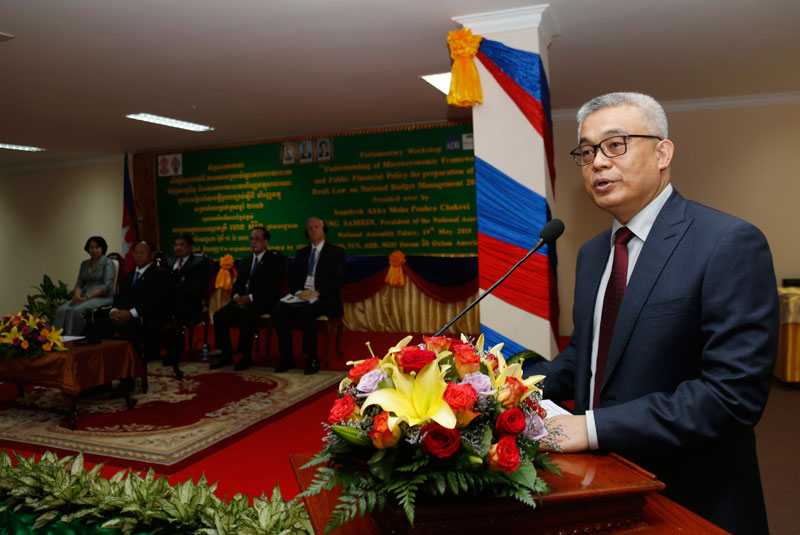CNRP lawmakers and NGOs on Tuesday called for a transparent national budget process as Finance Minister Aun Porn Moniroth said he hoped to have a final draft of the 2016 budget before the Council of Ministers by June 1—but revealed little about its contents.
The Finance Ministry first revealed the projected size of next year’s budget—$4.34 billion—last month with only a limited breakdown of how the money would be spent.

Mr. Porn Moniroth offered no new details at a public forum Tuesday on the budget process, which has been ranked among the least transparent in the world. He offered a few percentages—total spending up 11 percent year-on-year, state revenue matching 21.7 percent of GDP, and economic growth of 7 percent—but no dollar amounts.
Opposition lawmakers and NGOs at the forum, hosted by the National Assembly’s finance commission, asked for more details.
“Frankly speaking, it would be better to have documents with a detailed spending plan to make it easy to follow up,” said Son Chhay, a senior CNRP lawmaker.
“Because parliament’s job requires records, so that it can monitor and prevent informal spending,” he added, using a common euphemism for corruption.
Kim Natacha, who was there representing the Budget Working Group, an alliance of several local and international NGOs advocating for a more open budget process, agreed.
“The government must expand public engagement by providing the public the opportunity to participate in legislative hearings and/or discussions about the budget,” she said.
CPP lawmaker Chheang Vun insisted the critics were wrong.
“When preparing the budget, the lawmakers go to the sub-national level to meet with the villagers and ask them what they need,” he said.
“So where do you want to get involved?” he asked Ms. Natacha.
Cambodia’s national budget process is regularly criticized as opaque.
In 2013, the U.S.-based International Budget Partnership placed Cambodia near the bottom of a list of 100 countries ranked according to their budget transparency, focusing mainly on the availability and comprehensiveness of eight key documents. Cambodia scored 15 out of a possible 100 points, placing it well inside the bottom fifth of countries.
In 2013, the ruling CPP drove the national budget through the National Assembly by itself while the CNRP was boycotting parliament in protest over the disputed results of that year’s national election. In 2014, the CNRP, back in parliament, abstained from voting on the budget in protest over its lack of detail.
The government is also regularly criticized for spending too much on defense and security at the expense of health and education.



